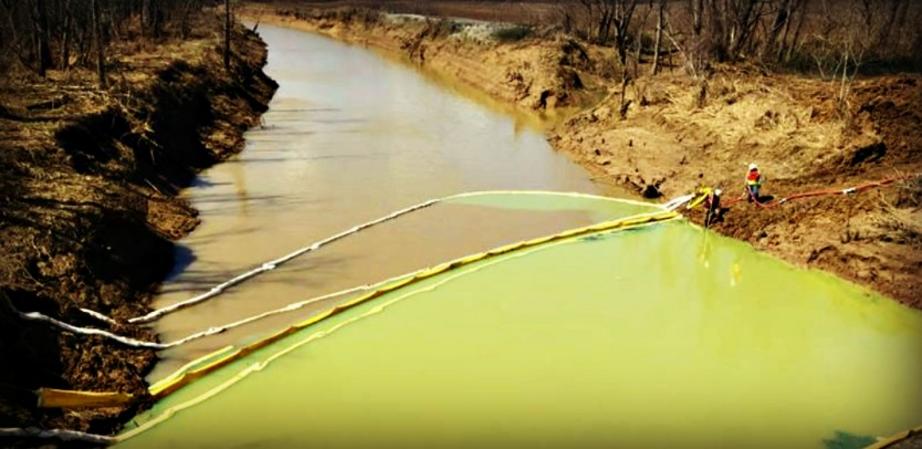Pipeline just leaked 42,000 gallons of diesel into Indiana stream
In what has now become common place in the United States, a leak from a Marathon Petroleum Corporation pipeline was detected last Tuesday evening. In all, 42,000 gallons of diesel spilled into Big Creek and Posey Creek, Indiana before the leak was even discovered.
Although the pipeline was immediately shut off and workers used two booms to contain the spill before it reached the Wabash river, the EPA is considering the incident “a large spill.”
The on-scene coordinator for the EPA, Kevin Turner, said that he did not believe the spill would impact wildlife and that no fish deaths have been reported yet.
However, the spill traveled four miles before it was stopped and Turner told the Indianapolis Star that “if the product had made it to the Wabash then we would not be able to collect any of it.”
Marathon was moving the fuel from its Robinson, Illinois refinery to its terminal located on the Ohio river in Mount Vernon, Indiana. Turner expects about 60% of the diesel to be skimmed and efforts are underway to recover the fuel.
This is not the only time that a Marathon pipeline has leaked. In April 2016, a pipeline near Mount Carmel, Illinois spilled 48,300 gallons into the Wabash River, as a result of erosion that had exposed the pipeline.
The pipeline was exposed to the river bottom itself due to the fact that it had been buried beneath the river. This is precisely the type of concern voiced by the Keystone XL Pipeline protesters and the Dakota Access Pipeline protesters who pointed out that burying pipelines under the river could cause this kind of ecological damage.
According to The Intercept, the Dakota Access Pipeline leaked five times in 2017. More protests are occurring against the proposed Kinder-Morgan Trans Mountain Pipeline Extension coming from the Alberta Tar Sands, which Singer and environmental activist Neil Young compared to Hiroshima to Vancouver, B.C.
Undark reported in 2016 that there have been more than 1300 crude oil spills in the United States from pipelines alone since 2010.
For full references please use source link below.

